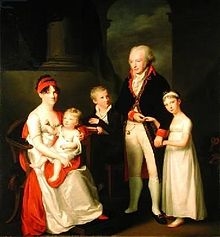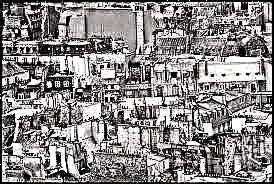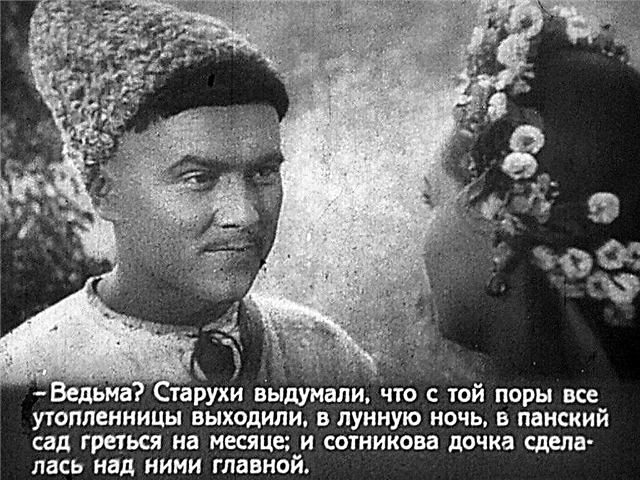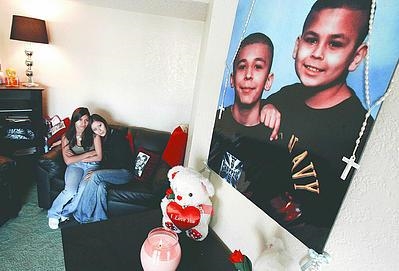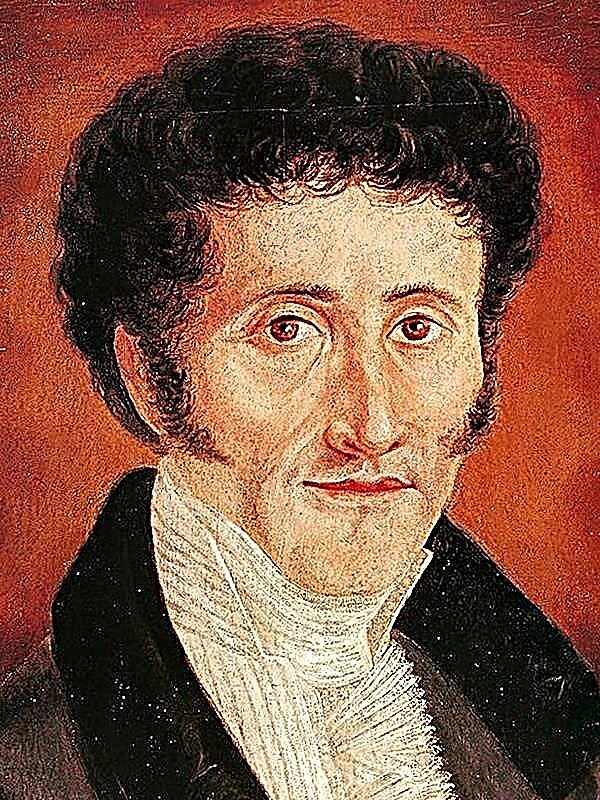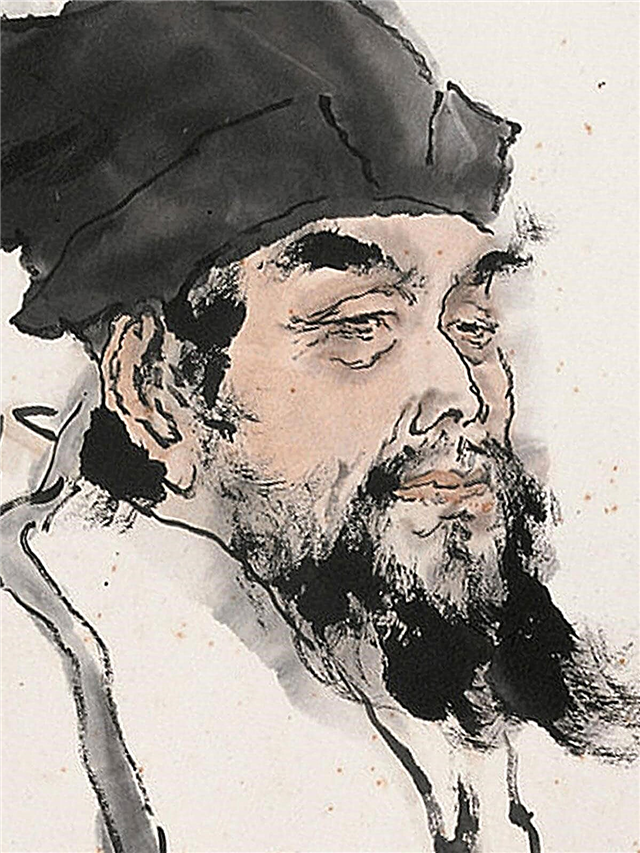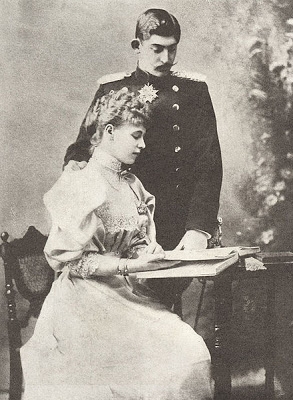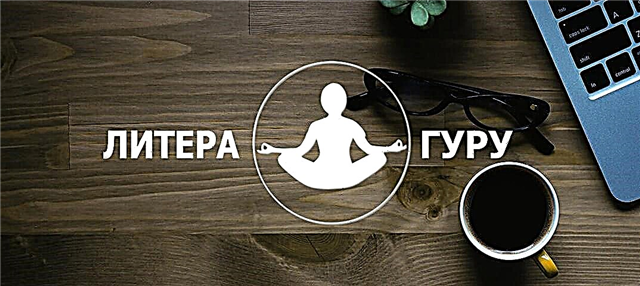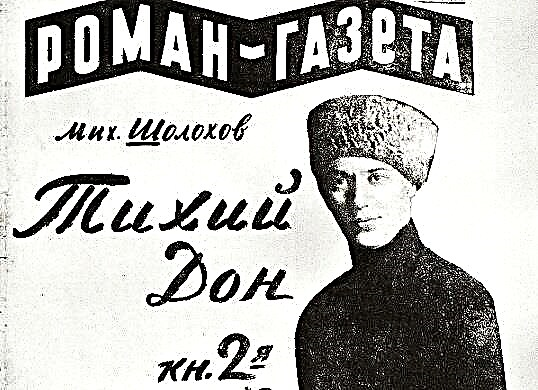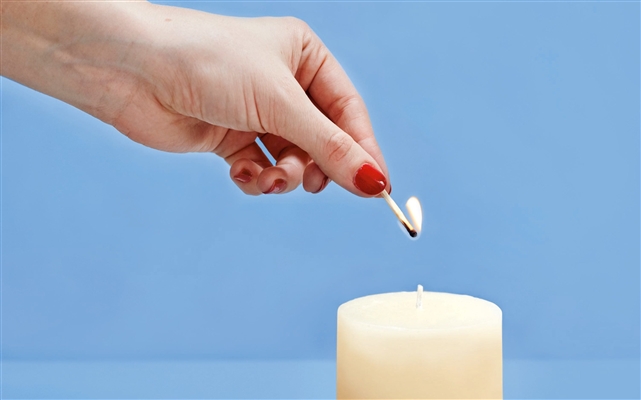Narrator Maxim tells us about his meeting with a certain Konovalov, and the reason for the story was a newspaper article stating that the tradesman of the city of Murom, Alexander Ivanovich Konovalov, who was arrested for vagrancy, probably hanged himself in a prison cell because of melancholy. Maxim, with his story, decided to clarify somewhat more clearly the reason for the suicide of this “glorious minor” ...
* * *
Maxim was eighteen when he met Konovalov. Then Maxim lived in a small Volga city and worked as an assistant to a baker, a soldier from the “music team” and a drunken drunkard. When the owner of the bakery made him suggestions for spoiled or delayed pastries, he scolded the owner and always indicated his musical talent: “I am a musician! Sometimes he sang an alt - I play the viola; oboe under arrest - blowing the oboe! ” The owner in response threatened to calculate the "musician", but the threats remained threats: in the summer it is difficult to find a good baker to replace.
And so the soldier drank, the master gritted his teeth, and Maxim had to work for two. But one fine day the owner calculated the soldier, with such a recommendation that he would hardly have found any work in this city. In his place, the owner took his former assistant, a skilled baker, but also a drunkard. True, unlike a soldier, he drank hard drinking: for three or four months he works like a bear, works and sings ... And then he takes into account drinking and drinking until he gets sick or drinks himself naked ...
* * *
The new baker, whom the owner introduced as Sasha Konovalova, was a tall, broad-shouldered man of about thirty. In appearance - a typical tramp, in the face - a real Slav. His blond hair was tangled, and his fair beard covered his chest like a fan. An oblong, pale, exhausted face was illuminated by large blue gentle eyes. His beautiful lips smiled slightly guilty under a light brown mustache. His hand, extended for a handshake, was long, with a wide brush.
The owner, introducing a new baker, left, and Maxim and Konovalov were left alone in the bakery. The bakery was located in the basement: there was little light and air, but there was a lot of dampness, dirt and flour dust. Long chests with dough stood against the walls, a huge oven occupied almost a third of the bakery. The vaulted, smoked ceiling crushed with its weight ... Konovalov examined the bakery and offered to go outside: "... I came from the sea ... I worked at the gates in the Caspian ... and all of a sudden from a latitude such a thing - into a hole!" On the street, Konovalov sat silently and thought about something, peering intently at passers-by, and sadness shone in his clear eyes. Maxim looked at his pale face and thought: “What kind of person is this?”, But did not dare to speak, because Konovalov inspired strange respect.
Then they returned to the bakery and set to work. Having hung up one mountain of dough, kneading another, they sat down to drink tea, and Konovalov suddenly asked: “Can you read? Read it, ”and handed Maxim a crumpled piece of paper — a letter. This was a letter from Kapitolina, a former merchant's daughter, and now a prostitute, with whom Konovalov had a relationship at one time and promised to marry her (and then she would be able to return to an honest life), but could not keep her promise: he washed down and ended up in Astrakhan . At the request of Konovalov, Maxim wrote a returning touching message. Konovalov did not like the message, and Maxim had to rewrite it, letting a tear in the letter. Konovalov approved the letter, but then in a conversation admitted that he would not marry Kapitolina, although he would definitely send money to “turn her off” from the brothel.
Konovalov generally had many women, many different specialties and places of work, he could live well, even securely.But only sometimes sometimes such a melancholy found on him that "that at that time it is completely impossible to live." As if he is one man in the whole world. And from this longing, from this "planet" or "disease" Konovalov began to drink. With the same longing, he left Vera, the owner of the circus, to which he was very attached. Vera often read different stories out loud to Konovalov (for example, about a dumb serf who drowned a dog on the orders of a lady), and in parting, she bit her hand so much that a scar remained.
Maxim usually didn’t really believe such stories: every tramp has a mythical “merchant” or “mistress” in the past. But in Konovalov’s story about Vera there was something true, unusual (for example, reading books), finally his sad and soft tone when recalling the “merchant” - an exceptional tone. A true tramp likes to show that for him on earth there is no such thing that he would not dare to scold.
“You believe me ...” Konovalov finished his story. - Although our brother is a tramp, fairy tales are told by a master. But if a person has nothing good in life, it won’t hurt if he invents a fairy tale for himself ... It’s impossible to live without any love: then a soul is given to him so that he can love ...
* * *
A week later, Maxim and Konovalov were already friends. Konovalov worked artistically. It was necessary to see how he copes with the dough, rolling it with mighty hands. He could bake three ovens, and not one in one hundred and twenty lush, ruddy loaves had a "seal". He liked to work, was fond of business, was discouraged when the oven baked poorly or the dough slowly came up, and was childishly cheerful and pleased if the bread came out correctly round, tall, with a crispy crust. It was nice to look at this gigantic child who was putting his whole soul into work - as every person should do in every work ...
Once Maxim asked Konovalov to sing. Konovalov refused, said that when he yearns, then he will begin to sing; and if she just sings, she will yearn, and then she will. And it’s better not to sing, not to tease with him. Maxim agreed, but sometimes he whistled or purred under his breath, and then Konovalov cut him off ...
* * *
Once Maxim took out a book and, perched on a window, began to read. Konovalov asked him to read aloud. Maxim read, and sometimes through a book, looked into Konovalov’s face and met his eyes - wide open, intense, full of deep attention. Maxim tried to read as clearly and figuratively as possible, but soon became tired and closed the book. Konovalov begged him to read to the end. Maxim read, Konovalov listened attentively and eagerly, when they were interrupted for work, they worked with feverish speed and almost in silence in order to return to reading faster. By morning, Maxim finished the book. Konovalov sat on a bag of flour and looked at Maxim with strange eyes: “Who composed this? Gave him a reward or what? ” When Maxim explained that they had not given anything, Konovalov sighed sadly:
- How wise it all is! A man wrote a book ... He wrote and ... died. But the book remained, and it is being read. And the writer died without a reward.
Maxim got angry at the lack of understanding of Konovalov and spoke about the fateful role of the tavern in the life of a Russian writer, which shocked the naive Konovalov:
“But do such people drink?” What are they ... after they write books, they drink it down? Of course after. They live, look at life, absorb the grief of others. Their eyes must be. special ... And the heart too ... See enough for life and yearn ... And pour melancholy into books ... This does not help, because the heart is touched ... It remains - to fill it with vodka ... For this it should distinguish them, because they understand more than others and point to disorder. Here I am, for example, a tramp, a drunkard and a touched man. Why do I live on earth and who needs me on it? Neither his own corner, nor his wife, nor his children, nor even to this, is there even a hunt. I live, longing ... Why? Unknown I have no inner path ... There is no spark in my soul ... strength, or what? So I’m looking for this sparkle and yearning for it, but what it is is unknown ...Now, if some writer had a closer look at me, could he explain my life to me, eh?
Maxim thought that he himself was able to explain his life to him. He fervently began to prove that Konovalov was not to blame for what he was. He is a sad victim of conditions, an equal being, reduced by historical injustice to a degree of social zero. Konovalov, while listening to this, was silent, and a good, bright smile arose in his eyes:
“How easy you are, brother!” How do you know all these matters? For the first time I have such a speech. All blame each other, and you - all your life. It turns out, in your opinion, that a person is not guilty of anything, but it is written in his family to be barefoot - that's why he is a tramp. How pitiful all this is for you! You are weak, apparently, with your heart! ... But here I am - a special article ... Who is to blame for what I drink? Pavelka, my brother, does not drink - in Perm he has his own bakery. But I work better than him - however, a tramp and a drunkard. But we are one mother's children! It turns out that something is amiss in me ... And I’m not alone - there are many of us like that. We will be special people ... we will not join in any order. We need a special account ... and special laws ... very strict laws - in order to eradicate us from life! Therefore, there is no benefit from us, but we take a place in it and we stand on the path with others ... We ourselves are to blame for ourselves ...
Maxim was stunned by such self-abasement, unprecedented even in a tramp, for the most part his being from everything torn off, hostile to everything and ready to try out the strength of his embittered skepticism. But the more stubbornly Maxim tried to prove to Konovalov that he was a “victim of the environment”, the more insistently Konovalov convinced Maxim of his guilt before himself for his share. It was original, but it infuriated Maxim. But Konovalov had the pleasure of scourging himself ... And a heated argument did not lead them to anything, everyone remained of his own opinion.
* * *
The next morning, Konovalov again asked to read aloud, and then promised to give Maxim half the salary so that he would buy books. Maxim began to read Kostomarov's “Riot of Stenki Razin.” At first, Konovalov did not like the book (“there is no talk”), but as the figure of Stepan Razin became more and more clear, Konovalov was reborn. Now his eyes were burning greedily and sternly from under frowning eyebrows; everything soft and childish disappeared in him, something lion and fire appeared in him. One would have thought that it was Konovalov, and not Frolka, the brother of Razin, who so piercingly experienced Stenkin's longing and insult to captivity. When the story reached the scene of Razin’s torture, Konovalov cried, and since he was ashamed of tears, he somehow growled so as not to sob. He was especially struck by the scene when Stenka gritted his teeth so that he spat them out with blood on the floor ...
And Maxim and Konovalov spent the whole day in a strange fog: they all talked about Razin, recalled his life, songs composed about him, torture. They got even closer from this day ...
* * *
Maxim then read Konovalova several times, “Riot of Stenka Razin”, then “Taras Bulba”, “Poor People”. Konovalov also really liked Taras, but could not obscure the impressions of Kostomarov’s book. “Poor people” Konovalov did not understand, he rejected Pugacheva: “Ah, brand-name helmets, - you look! He hid behind the royal name and stirs up ... "
He generally did not understand time well, and in his view all the heroes he loved existed together. When Maxim clarified this issue, Konovalov was sincerely upset.
On holidays, Maxim and Konovalov went over the river into meadows. They took some vodka, bread, a book with them, and in the morning they set off "for free air," as Konovalov called these excursions. They especially liked being in the glass factory. So for some reason it was called a dilapidated building, which stood near the city. Greenish-gray, as if descended, it looked at the city with the dark hollows of windows and seemed crippled, offended by fate, maybe because it gave shelter to various dark and homeless people.Maxim and Konovalov were welcome guests there, because they brought “glass people”, as Konovalov called them, bread, vodka and “hot” - a liver, a heart, a scar.
The Glass People paid for treats with stories in which a terrible, soul-stunning truth was fantastically mixed up with the most naive lie. Maxim often read various books to them, and almost always they carefully and thoughtfully listened to the reading. And Maxim also listened attentively to their stories, and Konovalov listened in order to resume the previous argument again:
“You are arguing incorrectly ... you are telling in such a way that you have to understand that your whole life was not made by you, but by the shabras.” And where were you at that time? We ourselves must build life! But how will we build it if we do not know how and our life failed? And it turns out that all the support is us! Well, we know what we are ...
They objected to him, but Konovalov insisted on his own. Often, such disputes, which began at noon, ended around midnight, and Maxim and Konovalov returned from the “glass people” in darkness and knee-deep in the mud.
When they didn’t want to philosophize, they walked into meadows, to small lakes, lit a fire, read a book or talked about life. And sometimes they looked up at the sky ... Konovalov loved nature with a deep, wordless love and was always imbued with a kind of peace-loving mood, which further increased his resemblance to a child.
* * *
Two months have passed. Maxim talked a lot with Konovalov, read a lot. He read The Stink of Razin Riot so often that he almost knew by heart. But here about Capitoline, the letter of which Maxim read on the first day of meeting Konovalov, was hardly mentioned during all this time. Konovalov, as promised, sent her money, but there was no answer.
And then one evening a chubby pretty woman in a white kerchief came into the bakery and asked the “baker Konovalov.” Konovalov suddenly and somehow very loudly rejoiced at her, walked over, hugged, and then led the visitor out of the bakery ... Maxim was left alone and did not expect Konovalov in the morning, but, much to his amazement, after three hours he appeared sour, boring and tired:
- Here it is, Capitolina, which line is oppressed: "I want, he says, to live with you like a wife." And I have binges, I am a tramp, I can’t live in one place ... But she began to threaten, then swear, and then cry ... Well, now what to do with her? Go to her, tell her ...
And he with such bewilderment and dismay spread his hands that it was clear - he had nowhere to put his wife! In him, apparently, the instinct of a tramp began to speak, a sense of the eternal desire for freedom, which was attempted:
- Maxim! Ayda to the Kuban ?! He suddenly suggested.
This Maxim did not expect. He had great “literary and pedagogical intentions” regarding Konovalov (first of all, to learn to read and write). Konovalov himself pledged not to move all summer, and suddenly ...
Maxim began to explain to Konovalov what to do with Kapitolina. And late at night, a huge cobblestone suddenly broke the glass of a bakery - it was Capitolina in the company of some drunken peasant. The capitoline was also drunk, disheveled, her white scarf was knocked to the side, the chest of her bodice was torn. She swayed, swore obscenely, squealing hysterically:
- Sasha, you ruined me ... Damn! You laughed at me! ... Sasha, can you kill me? Drown me!
Then the whistle of a night watchman intervened, and Capitolina and her gentleman were taken to the police.
Suppressed by this scene, Maxim and Konovalov for a long time could not come to their senses. Konovalov was scared and ashamed: “Tell me, what did it happen?” He asked.
And Maxim said that you need to understand what you want to do, and at the beginning of the business you need to imagine its possible end. Konovalov did not understand this, and now he was to blame. Maxim did not spare his friend: the screams of Capitolina still stood in his ears.
Konovalov, on the other hand, listened with fright and amazement, with an expression of purely childish sincerity of his guilt before this girl.Then he resolutely put on his cap and went to the police to "get a hold of her."
When Maxim woke up in the morning, Konovalov was not there. He appeared only in the evening - gloomy, disheveled, with sharp folds on his forehead and with some kind of fog in his blue eyes. He was silent all day, only out of necessity throwing brief words related to work, stumbling around the bakery. Something had definitely gone out in him; he worked slowly and listlessly, bound by his thoughts.
Only in the evening he asked to read about Stenka. But he listened gloomily, staring without blinking into the arches of the ceiling. Then he spoke briefly about Capitoline:
- Again I got to my point and no more ... Everything is the same. Only before she did not drink, but now she began to drink ...
They went to bed, but Maxim could not sleep. Suddenly he saw Konovalov silently go to the shelf, took Kostomarov’s book, and brought it to his eyes. He thoughtfully ran his finger along the lines, shook his head. Something strange, tense, and questioning was in his thoughtful and haggard face. Suddenly he noticed that Maxim was watching him, and asked:
- Is there any book about life routines? I need to clarify the actions that are harmful, which are wow ... I see, I am embarrassed by my actions ... Which at first seems good to me, in the end it turns out bad. Just about Kapka ...
Then he returned to his mug, sent straight to the floor, got up several times, smoked, lay down again. Maxim fell asleep, and when he woke up, Konovalov was no longer in the bakery, and again he appeared only in the evening - he went to Kapitolin to look:
“I am a contagious person ... It’s not my share of life in the world ... A poisonous spirit emanates from me,” he said, looking at the floor.
Maxim began to dissuade him, but Konovalov only more firmly established in his unfitness for life ...
* * *
He quickly and dramatically changed. He became thoughtful, listless, lost interest in books, worked not with the same fervor, tacitly, uncommunicatively. In his free time he lay on the floor and looked at the ceiling arches. His face haggled, his eyes lost their clear childish shine - the binge began ...
Maxim noticed that Konovalov seemed to be alienating him. Once, after listening to his project for the reorganization of life for the hundredth time, he even got angry: “It’s not about life, but about man. Teach him to find his path ... "
Once he left in the evening and did not come to work either at night or the next day. Instead, the owner appeared with a worried face and announced that Konovalov was sitting in the “Wall”.
The wall was called a tavern, cleverly arranged in a stone fence, it, in fact, was a pit dug in the ground and covered with a heap on top. His regulars were the darkest people who hung around there all day, waiting for the master craftsman to roll around to drink him down.
Maxim went to the Wall and found Konovalov sitting at a large table surrounded by six gentlemen in fantastically torn costumes, with the faces of the Hoffmann heroes. They drank beer and vodka, ate cooked meat, more like dry clods of clay.
In Konovalov, one could see the determination to drunk completely. He was not yet drunk, only his blue eyes sparkled with excitement. The collar of his shirt was unbuttoned, small droplets of sweat glistened on his white forehead, and his hand, outstretched for a glass of beer, shook. To Maxim's persuasions, he loudly answered:
- I’ll drink it all and ... coven! I don’t want to work anymore and I don’t want to live here. If you came ten years earlier, maybe everything would be different ... After all, I feel, I feel everything, every movement of life ... but I can’t understand anything and I don’t know my way ... I feel - and I drink, because I have nothing more to do ...
The tramps surrounding him looked at Maxim with hostility, they were afraid that he would take away the treats that they had been waiting for maybe a whole week. But Konovalov drank beer with vodka, wanting to stun himself with this mixture as soon as possible. When Maxim refused to drink with him, he roared: “Get away from me!”, And his eyes flashed brutally.
Maxim left, but returned three hours later - Konovalov was still in the “Wall”.He sang mournfully, leaning on the table and looking at the sky through the hole in the ceiling. It seemed that they feasted alive buried in a crypt and one of them sang for the last time before his death, saying goodbye to heaven. Hopeless sadness, despair, melancholy sounded in Konovalov’s song.
Maxim left them at the bakery, and after him, a clumsy drunk song moaned and cried in the night. Two days later Konovalov disappeared somewhere from the city ...
* * *
One must be born in a cultural society in order to find patience to live all his life amid conventions, legitimized little lies. Maxim was born outside this society, and from time to time he had a need to go beyond his framework. That is why he plunged into the slums of cities, and sometimes just walked along the fields and roads of his homeland.
Five years later, taking such a walk, Maxim came to Feodosia, where they built a pier. He went up the mountain and looked from there to work like a picture: at the endless, powerful, eternal sea and tiny people, obsessed with the eternal desire to build, a desire that creates miracles, but does not give people shelter and bread. The entire rocky shore in front of the bay was dug, along it like ants scurried people who blew up the mountain with dynamite and now clearing the area for the railway. Along the scattered planks were moving strings of people bent over wheelbarrows loaded with stone, a pile driver was working nearby, hammering piles.
From all over Russia, thousands of people were driven to starvation by construction, and all of them tried to keep their fellow countryman to the fellow countryman, and only the cosmopolitan tramps immediately stood out - with an independent look, a suit and a special voice. Most of them gathered at the copra - work easier compared to working on wheelbarrows and with a pickaxe.
Maxim went up to them to find out whom to turn to in order to “get to work.” And then he heard a familiar voice, saw a familiar broad-shouldered figure with an oval face and large blue eyes. Konovalov? But Konovalov did not have a scar from his right temple to the nose, Konovalov’s hair was lighter and did not curl in small curls; Konovalov had a beautiful wide beard, he shaved and wore a mustache with the ends down, like a crest. When they stopped piling, Maxim called to the man:
- Konovalov!
- Maxim! - flashed that joyful and kind smile. - And I, brother, have been walking around the world since that time. I thought it was to get along with my comrades through the Romanian border, to see how it was in Romania. Then I was a soldier and went on the head ... And curls curled after typhoid. They put me in jail in Chisinau and got sick there. And he would die, if not for the nurse. She read to me sometimes. Once I read about an English sailor who escaped from a shipwreck on a deserted island and built his life on it ... But this is what: I don’t work today! I have money, let's go to our place ... We are not in the hut, but here in the mountain ... there is a hole there, very convenient. Together we are lodging in it, but comrade is sick - his fever twisted.
He was all kind of new, lively, calmly confident and strong. And two hours later, Maxim was already lying in the “hole” - a small niche formed during the development of the stone. A block of stone hung dangerously over the entrance to the “hole”. They settled down like this: they put their legs and torso into a hole where it was cool, and left their heads in the sun. And the sick little tramp got out in the sun, grinding his teeth with fever. It was a dry and long crest "from Piltava".
Konovalov tried to welcome his dear guest as cordially as possible. Maxim spoke about his life, Konovalov in response suggested leaving the city and going with him to wander to Tashkent or the Amur ...
When the sun went down, Konovalov lit a fire, put a kettle in it and, hugging his knees, began to look thoughtfully into the fire. A crest, like a huge lizard, crawled to it.
“Cities are needed for winter,” Konovalov said suddenly, “but big cities are useless.” All the same, people cannot get along with each other. In general, neither in the city, nor in the steppe, nowhere is a person a place. But it’s better not to think about such things ... you won’t invent anything, and you will tear your soul ...
Maxim thought that Konovalov changed from a wandering life. But the tone of his last sentence showed that he remained the same person looking for his "point". All the same rust of bewilderment before life and the poison of thoughts about it corroded a powerful figure, born, unfortunately, with a sensitive heart. There are many such “thoughtful” people in Russian life, and they are all more unhappy than anyone, because the severity of their thoughts is increased by the blindness of their mind. In support of this, Konovalov exclaimed wistfully:
- I remembered our life ... How much land I went after that, how much I saw ... There is nothing convenient for me on earth! I did not find a place for myself! Why can't I be at ease? Why am I sick?
Bonfire goes out. Maxim and Konovalov climbed into the “hole” and lay down with their heads out in the air. Maxim looked at the dying bonfire and thought: “So we all ... If only it would burn brighter!”.
Three days later, he said goodbye to Konovalov. Maxim went to the Kuban, but Konovalov did not want to. But both parted in the belief that they would meet.
I didn’t have to ...

